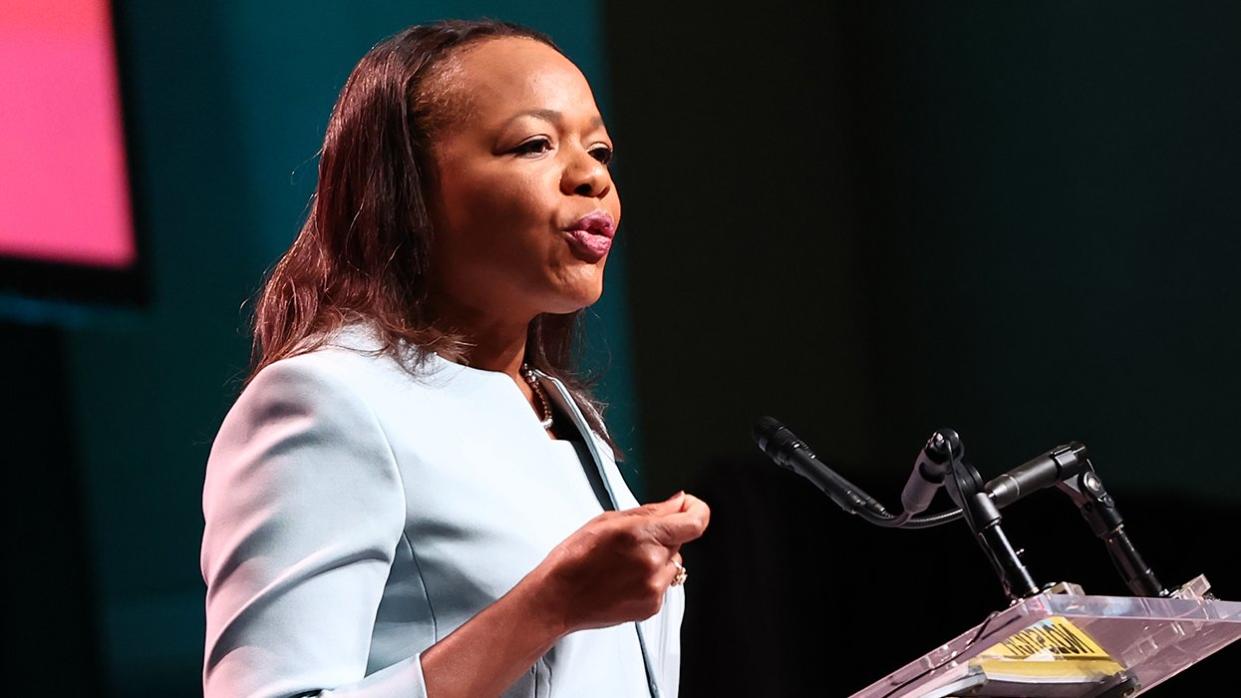DOJ sues Utah for discriminating against incarcerated trans woman who self-castrated

- Oops!Something went wrong.Please try again later.
The Department of Justice is suing Utah and its corrections department for discriminating against an incarcerated transgender woman by denying her access to gender-affirming care.
The inmate, whose name was not released, was repeatedly denied hormone therapy by the corrections department, which also failed to make other reasonable accommodations such as housing, changing pat-down procedures, and allowing her to buy women's clothing like bras and blouses from the prison commissary. Out of distress, the woman removed her testicles via self-surgery while in custody.
The complaint filed Tuesday by the DOJ accuses the Utah Department of Corrections of imposing "unnecessary barriers to treatment for incarcerated individuals with gender dysphoria that are not required for other health conditions," in violation of the Americans With Disabilities Act.

Utah Department of Corrections
The DOJ's Civil Rights Division recently filed a statement of interest aiming to clarify that gender dysphoria can be a covered disability under the ADA. Correctional institutions would therefore be in violation of the Eighth Amendment when they refuse to provide gender-affirming care to incarcerated individuals with gender dysphoria.
“People with gender dysphoria, including those held in jails and prisons, are protected by the Americans With Disabilities Act and are entitled to equal access to medical care just like anyone else with a disability,” explained Kristen Clarke, assistant attorney general for the DOJ’s Civil Rights Division, in a news release.
The DOJ first released its findings on the case last week. The investigation into the UDOC’s practices is part of the department's broader efforts to combat discrimination against people with gender dysphoria.
“Delays or refusals to provide medical treatment for people with gender dysphoria can cause irreparable harm, including debilitating distress, depression, attempts at self-treatment and even death by suicide," Clarke continued. "The Civil Rights Division is committed to protecting the rights of all people with disabilities in our country, including those who experience gender dysphoria — and those rights are not given up at the jailhouse door."

